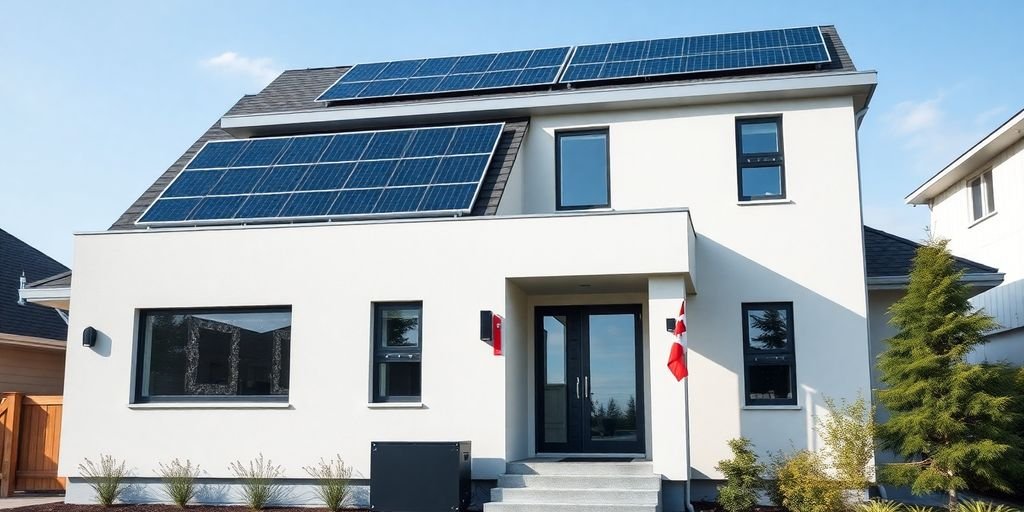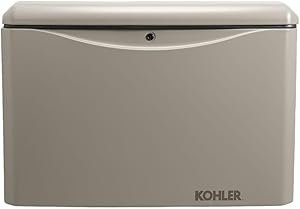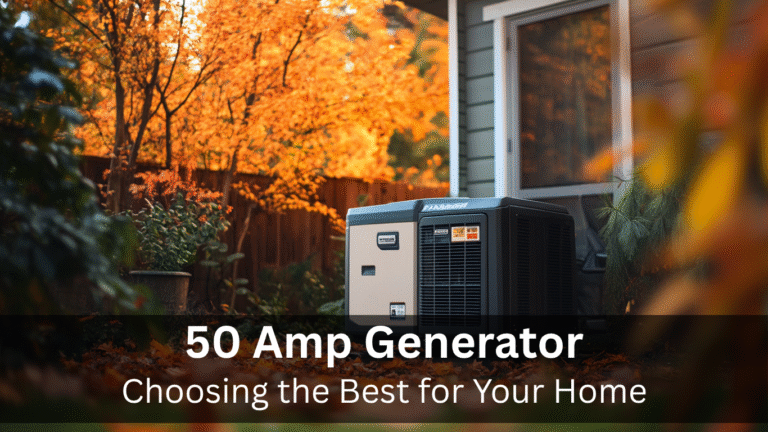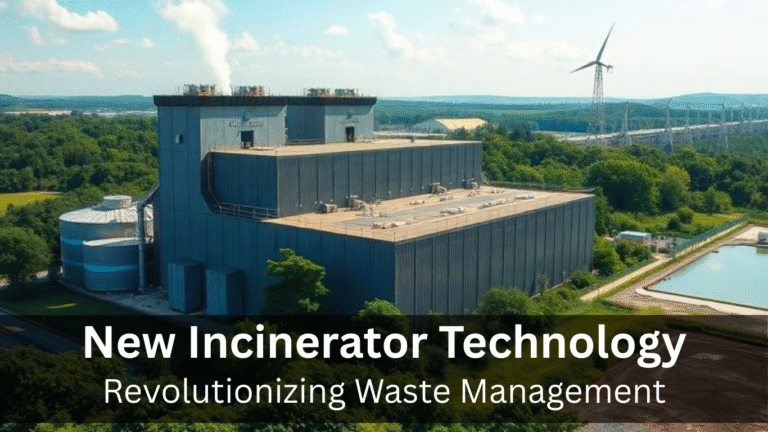Top Tesla Powerwall Alternatives in Canada for Home Energy Storage
So, you’re thinking about home energy storage, and the Tesla Powerwall probably popped into your head first. It’s a popular choice, for sure. But here’s the thing: sometimes, getting a Powerwall can mean waiting a really long time. We’re talking months here. Plus, some folks just aren’t keen on anything Tesla these days, for various reasons. Whatever your situation, there are plenty of other great options out there for home battery systems. We’ve put together a list of top Tesla Powerwall Alternatives in Canada to help you find the perfect fit for your home’s energy needs.
Key Takeaways
- The Tesla Powerwall isn’t the only game in town for home energy storage; many strong alternatives exist.
- Long wait times for Powerwall installations can be a major downside for homeowners.
- Several companies offer competitive battery solutions with unique features and price points.
- Considering your specific energy needs and budget is important when picking an alternative.
- Some alternatives might offer better availability or different capabilities compared to the Powerwall.
1. Enphase IQ
If you’re looking for a solid alternative to the Tesla Powerwall, the Enphase IQ battery is worth considering. One of its biggest advantages is its availability. Unlike some other options, you shouldn’t face long wait times, meaning you can get your solar panel system up and running quickly. This is a big plus if you want to maximize your system’s functionality from day one.
Enphase IQ batteries integrate well with solar panel systems, allowing homeowners to store extra solar energy. This is especially useful where utility policies are changing, like with time-of-use rates or net metering. By storing excess energy when your solar panels produce more than you need, you reduce your reliance on the grid. The battery then releases stored energy when solar output is low, providing a reliable energy source.
Here are some key features of the Enphase IQ battery:
- Scalability: You can start with one unit and add more as your energy needs grow.
- Efficiency: It boasts a high round-trip efficiency, meaning you get more usable power from the stored energy.
- Safety: Made with Lithium Iron Phosphate (LiFePO4) for enhanced safety.
The Enphase IQ battery is designed for safety and performance. It comes with a 10-year warranty, ensuring it maintains at least 70% of its original capacity over the decade. This makes it a potentially valuable investment in long-term energy independence.
While the initial cost might be a factor, the long-term benefits and reliability make it a strong contender in the home energy storage market. Compared to the Canadian Solar EP Cube and other competitors, Enphase offers a compelling package.
2. Canadian Solar EP Cube
Canadian Solar might be known for their solar panels, but they’ve also jumped into the energy storage game with the EP Cube. It’s definitely a contender if you’re looking beyond the usual suspects like Tesla.
The EP Cube is designed to be modular, so you can scale up your storage capacity as needed. This is a big plus if your energy needs change over time, or if you want to start small and add more later. It’s also got a decent warranty, which is always reassuring when you’re making a big investment like this.
One thing to keep in mind is that installation can be a bit more involved compared to some other systems. You’ll want to make sure you’re working with a qualified installer who’s familiar with the EP Cube. Also, while it’s generally reliable, some users have reported occasional software glitches, so it’s worth doing your research and reading reviews before you commit. Overall, it’s a solid option, especially if you’re already considering Canadian Solar panels. Don’t forget to check out home energy storage options to compare features and benefits.
The Canadian Solar EP Cube offers a flexible and scalable energy storage solution, making it a worthwhile consideration for homeowners looking to maximize their solar investment and enhance energy independence.
Here’s a quick look at some key features:
- Modular design for scalability
- Decent warranty coverage
- Compatible with various solar panel systems
- Requires professional installation
3. FranklinWH aPower2
FranklinWH is making waves with solar installers. It was the fourth most used battery by installers last year. Its popularity isn’t random; it’s a feature-rich option with smart battery management. Plus, it plays nice with popular equipment like Enphase and SolarEdge inverters, giving you more flexibility in your system design.
Some cool features of the FranklinWH system include:
- Electric car charging
- Generator integration
- Black start capabilities
Installers also say it’s easy to install and get running. It’s definitely a contender if you’re looking for a solid solar battery backup systems.
4. Panasonic EVERVOLT

Some people like the familiarity of big brands, and Panasonic definitely fits that bill. The Panasonic EVERVOLT offers that same peace of mind. It’s a brand most people already know, and it’s likely to meet your power needs.
The EVERVOLT battery system is basically a big rechargeable battery that gets its power from the sun. It’s made to give power to homes when they need it. What makes Evervolt stand out is not just its look, but how well it fits in with homes. There are four different types, including both AC and DC coupled models. You can mix and match them to make bigger systems. Plus, Evervolt can work with solar panel systems, which can save homeowners money.
Think of Evervolt like a camel storing water. It’s not just about how much it can store, but how smart it is about using that stored energy. The bigger EverVolt Plus model can put out 5.5 kW of power and has a usable capacity of 17.1 kWh.
Here’s a quick look at how it stacks up against some competitors:
| Tesla Powerwall 2 | Enphase IQ 5P (3 modules) | FranklinWH aPower 2 | Canadian Solar EP Cube (5 Modules) | Panasonic EVERVOLT EVX-15 | PointGuard | |
|---|---|---|---|---|---|---|
| Usable capacity | 13.5 kWh | 15 kWh | 15 kWh | 19.9 kWh | 17.1 kWh | N/A |
Here are some things to consider:
- Modular design offers flexibility.
- Excellent 12-year warranty provides peace of mind.
- Home battery options are diverse, so compare carefully.
The Panasonic EverVolt price, including getting it installed, is usually between $15,000 and $20,000. The Plus model is usually on the higher end of that range.
5. PointGuard
One thing people like about the new Powerwall 3 is its high power output. The Powerwall is pretty powerful, especially considering its price. PointGuard offers models that can match that power output, ensuring you can still run all your appliances without a problem. If you’re looking for solar battery storage that can keep up with your energy demands, PointGuard is worth considering.
PointGuard’s focus on high power output makes it a strong contender for those who need to run multiple appliances simultaneously or have high energy-consuming devices. It’s a practical choice for households that can’t afford to compromise on power availability during outages.
6. SunPower SunVault
The SunPower SunVault is crafted by SunPower, a leading panel manufacturer in the U.S. This home battery boasts a greater potential capacity and a higher continuous power output than the Tesla Powerwall. This makes it ideal for homes with above-average energy consumption that Tesla’s products might struggle to handle.
If you pair it with a Hub+ smart home system from SunPower, you gain total control over individual electronics during a blackout, conserving power for essential items. This feature is not available in the Powerwall, but can be found in a few other options, like the Generac PWRcell.
The SunVault has the highest continuous power rating available at a massive 6.8 kW. This battery is ideal for homeowners who have high energy demands and want no interruptions to their consumption. With a power rating that high, you could more or less run most of your appliances at once without any issues or damage to your battery.
Here’s a quick look at how the SunVault compares to the Powerwall+:
| Feature | SunVault | Powerwall+ |
|---|---|---|
| Round-Trip Efficiency | 85% | 90% |
| Degradation | 70% | N/A |
Some advantages of the SunVault include:
- Availability: There have been no reported wait times for the SunVault.
- Customization: SunPower offers the Hub+, which gives you total control over energy consumption.
- Power Output: The SunVault outperforms the Powerwall in terms of power output, with 6.8 kW compared to 5.8 kW.
7. Ford F-150 Lightning

The Ford F-150 Lightning is making waves as a dual-purpose solution: an electric vehicle and a home energy storage system. It’s an interesting alternative to dedicated systems like the Tesla Powerwall, especially if you’re already in the market for an EV. The Ford app gives you control over how power flows to and from your truck, making it a versatile backup option.
One of the biggest advantages of the F-150 Lightning is its substantial single-battery capacity. You can get it with a large battery, offering significantly more storage than a single Powerwall. This makes it a strong contender if your primary goal is to maintain power for an extended period during outages. Plus, as of today, the F-150 Lightning is readily available, new or used, which is a contrast to the sometimes long wait times associated with Powerwall installations. You’ll still need a solar installation company to set up the home integration system, but that process is generally straightforward.
The F-150 Lightning offers great value, especially when you consider its added functionality as a truck.
Here’s a quick comparison:
| Tesla Powerwall | Ford F-150 Lightning | |
|---|---|---|
| Storage Capacity | 60 | 100 |
| Overall Power | 90 | 70 |
| Value | 90 | 100 |
| Customization Options | 50 | 30 |
| Availability | 40 | 80 |
| Overall | 68 | 76 |
However, there are some downsides. If your Lightning isn’t parked at home and plugged into your home integration system, you won’t have backup power during a blackout. Retroactively plugging it in is an option, but the switch to off-grid power might not be seamless. The Powerwall, on the other hand, is always ready.
Another thing to consider is the warranty. The Powerwall comes with a 10-year warranty guaranteeing 70% of the original capacity, while the F-150 Lightning guarantees the same after eight years. So, the Powerwall offers a bit more peace of mind in that regard. Ultimately, the best choice depends on your specific needs and priorities. If you need a truck and backup power, the Lightning is a compelling option. If you’re solely focused on reliable home energy storage solar battery storage, the Powerwall might be a better fit.
8. Enphase Encharge
The Enphase Encharge is another strong contender in the home energy storage market. It’s designed to work seamlessly with Enphase’s microinverters, creating a fully integrated solar-plus-storage system. This can simplify installation and management, which is a plus for many homeowners. The Encharge system is modular, meaning you can start with a smaller storage capacity and add more batteries as your needs grow. This flexibility is a key advantage.
One of the biggest benefits of the Enphase Encharge is its high round-trip efficiency. With a rating of up to 96%, it beats out many competitors, including the Tesla Powerwall. This means you’ll get more usable energy out of the battery for every unit of energy you put in. Plus, Enphase is a well-established company in the solar industry, Enphase Energy, Inc. so you can expect good support and future upgrades.
The Enphase Encharge is particularly well-suited for homeowners who want a reliable backup power source for emergencies. While it might not have the highest total capacity compared to some other options, its modular design and high efficiency make it a compelling choice.
Here’s a quick rundown of some key features:
- Modular design for flexible storage capacity
- High round-trip efficiency (up to 96%)
- Seamless integration with Enphase microinverters
- 10-year warranty
While the Encharge offers great customization, the Tesla Powerwall has a higher continuous power rating. This means the Powerwall can handle more appliances running at the same time during a blackout. Also, if you need a large amount of storage, the Powerwall can be expanded to a higher total capacity. However, the Encharge’s modularity and efficiency make it a strong contender, especially for those with smaller energy needs or those who want to start small and expand later.
9. LG Chem RESU
LG Chem, through its subsidiary LG Energy Solution, provides the RESU10H Prime and RESU16H Prime home batteries. They’re known for being reliable and cost-effective. As a leader in lithium-ion batteries, LG Chem has lots of experience, even supplying batteries for electric vehicles like the Chevy Bolt. Launched in 2021, the RESU10H and RESU16H Prime batteries aim to protect against grid outages, shift loads during peak times, and boost energy independence. These features make LG Chem batteries strong competitors to the Tesla Powerwall.
The RESU10H and RESU16H Prime batteries cost between $9,000 and $11,000 for the RESU10H, and over $11,000 for the RESU16H. They are DC (direct current) batteries, which usually means better round-trip efficiency than AC batteries. This means less energy is lost when charging and discharging, making them more efficient. Because they’re DC, you need specific inverters, which can make it harder to add them to existing solar systems. But they’re good at backing up important appliances during power outages.
LG Chem’s batteries don’t let you stack output like some other systems, but they’re still a solid choice for backup power. They use passive cooling, which works well but isn’t as advanced as the liquid cooling in the Tesla Powerwall. Still, the RESU10H and RESU16H Prime batteries are tough and dependable. With federal tax credits and state incentives, LG Chem batteries are a good, affordable option, offering big savings compared to others, including the Tesla Powerwall. Thinking about a big energy solution? A 1 MWh battery storage systems might be what you need.
I’ve heard mixed reviews about LG Chem RESU batteries. Some people say they’re super reliable and a great value, especially with the incentives. Others mention that the lack of stackability can be a limitation if your energy needs grow. It really seems to depend on your specific situation and how much backup power you need.
10. Generac PWRcell
The Generac PWRcell stands out because of its modularity. It gives homeowners the ability to pick the right capacity to fit their energy use. Every house is different, and the PWRcell lets you customize it to your specific needs.
The PWRcell can store between 9 kWh and 18 kWh, depending on how many battery modules you add. It’s also got a round-trip efficiency of 96.5%, which is pretty good. You can even expand the system in 3 kWh chunks if your energy needs grow. The Generac Power Systems review highlights the importance of proper model selection.
However, there are some things to keep in mind. Some users have had issues with Generac’s customer service and the product’s long-term reliability. Warranty issues have also been a concern for some.
Despite these issues, the PWRcell is still a decent choice for energy storage. You can monitor and control it with the PWRview app, which is easy to use and gives you real-time info on your energy use. The cost is between $10,000 and $20,000, depending on the capacity you choose.
It’s a good idea to talk to certified installers and get a few quotes to see if the PWRcell is the right fit for your home’s energy storage needs. Consider the pros and cons before making a decision.
Wrapping It Up
So, there you have it. While the Tesla Powerwall gets a lot of attention, it’s definitely not the only game in town for home energy storage. There are some really good alternatives out there, especially if you’re in Canada. Whether you’re looking for something more affordable, better availability, or just different features, you’ve got options. It really comes down to what your home needs and what you want to get out of your energy system. Take your time, look at all the choices, and pick the one that makes the most sense for you.
Frequently Asked Questions
What is an alternative to a Tesla Powerwall?
The Tesla Powerwall is a well-known home battery, but there are many other great options. Some top picks include the SunPower SunVault, the Ford F-150 Lightning (which can power your home), and the Enphase Encharge. Other good choices are LG Chem RESU batteries, the Enphase IQ battery, Panasonic EVERVOLT, and Generac PWRcell. If you like to do things yourself, Renogy also offers storage solutions.
What is the cheapest alternative to Tesla Powerwall?
Many factors can make a solar battery cheaper, like its size or how it’s built. Some of the most affordable options that are good alternatives to the Tesla Powerwall include the Canadian Solar EP Cube and the Enphase Encharge.
What is the best alternative to the Tesla Powerwall?
The best alternative depends on what you need. If you want something that’s easy to get and install, the Enphase IQ battery is a great choice. For those on a budget, the Canadian Solar EP Cube offers good value. If you’re looking for lots of cool features, the FranklinWH aPower2 is a strong contender. For a reliable brand, Panasonic EVERVOLT is a solid pick. And if you need a lot of power, PointGuard is worth looking into.
Why would someone choose an alternative to the Tesla Powerwall?
The Powerwall is a popular choice for home energy storage, but it has some downsides. Sometimes, you have to wait a long time to get one, maybe even six months. Also, some people don’t want to buy Tesla products because of things Elon Musk has said or done. Whatever your reason, there are many good alternatives out there.
Where does the Tesla Powerwall fall short?
The Tesla Powerwall is a good battery, but it’s not perfect for everyone. It can be quite expensive, and each unit has a fixed storage amount. This means if you need more power, you have to buy another whole unit, which adds to the cost. Some other batteries are more flexible, letting you add smaller parts to get the exact amount of power you need.
Who makes batteries similar to the Tesla Powerwall?
While the Tesla Powerwall is a popular choice, many other companies make excellent home batteries. Some of the top brands include Enphase, Canadian Solar, FranklinWH, Panasonic, PointGuard, SunPower, Ford (with their F-150 Lightning), LG Chem, and Generac. Each of these offers unique features and benefits.








